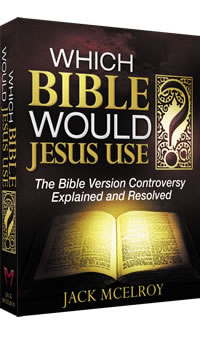Is Isaiah 53:4 a mistranslation for the words "pain" and "suffering" as grief and sorrows?

From "Answers To Your Bible Version Questions"
©2003 by David W. Daniels Reproduced by permission
Question: Is Isaiah 53:4 a mistranslation for the words "pain" and "suffering" as grief and sorrows?
Answer: The King James is correct: the Hebrew words have more than one meaning. The KJV translators knew which meaning applied, because they paid close attention to the context in which the words were found. Here is Isaiah 53:4
Surely he hath borne our griefs, and carried our sorrows: yet we did esteem him stricken, smitten of God, and afflicted. (Isaiah 53:4)
The word for "grief" in Hebrew is choliy, which can mean "sickness" as we see clearly in Deuteronomy 7:15. In this context the Lord promised health as a blessing of the Old Covenant for obeying Him:
And the LORD will take away from thee all sickness [Hebrew, choliy], and will put none of the evil diseases of Egypt, which thou knowest, upon thee; but will lay them upon all them that hate thee. (Deuteronomy 7:15)
But it also rightly means "grief," as we find in Jeremiah, "the weeping prophet":
Woe is me for my hurt! my wound is grievous [Hebrew, chalah, a related word]: but I said, Truly this is a grief [Hebrew, choliy], and I must bear it. (Jeremiah 10:19)
Since "infirmity" is alike in meaning to "sickness," we see God inspired apostle Matthew Levi to translate properly "Himself took our infirmities and bare our sicknesses. (Matthew 8:17a).
In the same way, we know the word for sorrows [Hebrew, mak'ob, also translated pain] should be translated the way it is in the King James Bible. Look at these Scriptures, again from "the weeping prophet":
Thou didst say, Woe is me now! for the LORD hath added grief to my sorrow [Hebrew, mak'ob]; I fainted in my sighing, and I find no rest. (Jeremiah 45:3)Is it nothing to you, all ye that pass by? behold, and see if there be any sorrow [Hebrew, mak'ob] like unto my sorrow [Hebrew, mak'ob], which is done unto me, wherewith the LORD hath afflicted me in the day of his fierce anger. (Lamentations 1:12)
The King James Bible is God's preserved words from Greek and Hebrew into English. It is completely and contextually accurate. And we need not hesitate to trust exactly what it says, even if we never learn or check the Greek or Hebrew. It's that accurate.
May God bless you as you read every one of His preserved words in English, the King James Bible.
- See more articles on related topics:
- Bible Versions
- King James Bible
- Bible Translation
Products of interest:
-

Answers to Your Bible Version Questions
224 pages
David W. Daniels answers difficult questions about the KJV. Learn how to defend the KJV and why you can trust it. -

Look What's Missing!
256 pages
For years, publishers have been removing words, and even whole verses, from modern Bibles. What's missing from your Bible? Take a look! -

Which Bible Would Jesus Use?
342 pages
Everyone's got an opinion as to which Bible is best. If Jesus walked into your church, which Bible would He quote from? -

Can You Trust Just One Bible?
160 pages
Answers to the most common anti-KJV accusations.
